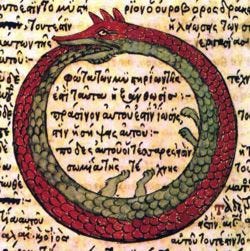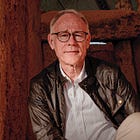
Yesterday,
put out a great post about Graham Hancock. Read it if you haven’t yet. It’s a great summary of Hancock’s ideas.John knows more about this stuff than me. I’m more of a big picture kind of gal (a kind way of saying “pathetically lazy”).
In short, Hancock’s theory is this: an advanced ice age civilization thrived 12,000 years ago before being destroyed in a cataclysm. The survivors of this civilization then introduced their beliefs and agriculture to hunter-gatherers—which is why several cultures thousands of miles apart seem to have eerily similar origin stories regarding their creation myths. Several theories for what cataclysm could have wiped this civilization out is the Younger Dryas impact hypothesis or a pole shift taking place. (Either option is pretty scary to imagine taking place today.)
Note: the above paragraph is ripped directly from John’s piece. Seriously, read it. It’s fantastic—way better than this one.
This got me thinking. What would happen if a major cataclysmic event happened today?
Imagine: the year is 2050. A solar flare has just wiped out the Internet and the power grid (is this what would happen?) and the entire civilized world is in shambles. I am New York City’s sole survivor.
This is purely speculative, of course. It’s unlikely that any of us city dwellers would make it. Besides the fact that the place is so congested that we’d all be pillaged by gang members and steroid-fueled gym bros within seconds, none of us have the survival skills to last three days on our own once we run out of canned tuna and bottles of Poland Spring water.
However, let’s be generous and say that a few of us pansy-ass city people make it out alive, and manage to walk on our atrophied car-legs all the way to the nearest hunter-gatherer tribe. Is there anything of value that we can offer?
I’d bet that there are only a handful of people in the entire ‘first world’ who would actually be useful in a post-apocalyptic scenario. The people who know how electricity works—not just how to connect the parts that someone else made, but how to actually make electricity from nothing. The people who know how computers work—not just how to code, but how to actually build a computer and its parts, and how to program the thing to make it operate.
Knowledge is so specialized now. Everything is interdependent. There’s no one person who can build our civilization back up from nothing—honestly, I’d be surprised if there were more than one or two people in the world who could effectively build up the industry that they work in back from nothing.
The only people who would actually have anything of value to pass on are the super-mega-geniuses and the farmers. In the likely event that the super-geniuses all perished, whatever disjointed vestiges of knowledge the rest of the survivors carried would be incomprehensible, and would vanish without a trace within a generation.
If a new civilization ever came to be, it would start completely from scratch, developed organically from nothing over thousands of years by a minority of hyper-intelligent people who discover the whole thing over again for themselves. There might be some books that remained that no one would ever be able to read. In other words, it would be like the whole thing never happened.
If anyone even bothers to keep the rest of us around, the only thing we would have to offer would be our stories. Whatever tribe we’d assimilate into would have their own gods; I doubt they’d have any interest in ours. But they might incorporate into their own verbal tradition a tale of a once-great empire of dunces that one day fell to ashes.





This is spot on. I wish you were able to sit in on the Dibble vs Hancock debate and say this. It would have certainly shut it down immediately..
What would I have to offer in a post-apocalyptic world? I'm pretty sure the bugs would come after me first. They seem to. It's an interesting point to ponder. Many of us haven't even figured out what we have to offer the world we currently live in.